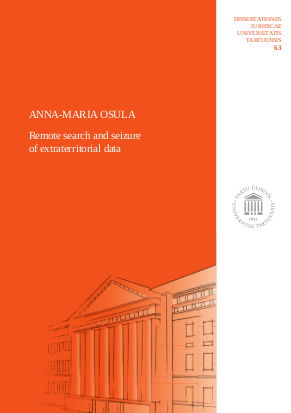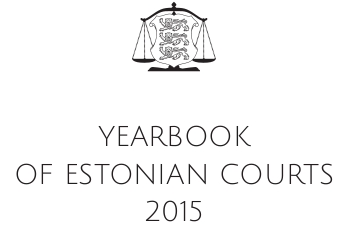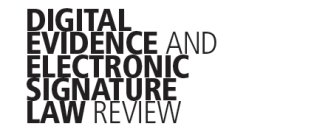
Anna-Maria Osula PhD thesis: “Remote search and seizure of extraterritorial data”
Defense date: 17.04.2017 – 12:00, Näituse 20, room K-03Supervisor:
Professor Jaan GinterOpponent:
Dr Christoffer Wong (University of Lund)Summary:
Due to increasing digitalization, criminal procedure has to take into account the characteristics of the Internet, related technologies and digitally stored or electronically transmitted data. The objective of the dissertation is to examine, building on the example of the Council of Europe Convention on Cybercrime (CoCC), the regulation of remote search and seizure in circumstances where the targeted evidence is extraterritorially located or where it is not possible to identify the exact location of the data (‘loss of location’). Remote search and seizure entails searches that are either carried out by extending the initial search and seizure to devices accessible from the originally searched device or by remotely conducting search and seizure from other devices such as the law enforcement’s own. In addition to discussing the traditional mutual legal assistance procedures and alternative measures for accessing extraterritorial data, the dissertation scrutinizes whether remote search and seizure of extraterritorial data entails an extraterritorial application of jurisdiction to enforce and whether it can thereby be viewed as a breach of territorial sovereignty of the other state.
Links:
http://www.ut.ee/en/events/anna-maria-osula-remote-search-and-seizure-extraterritorial-data
http://dspace.ut.ee/handle/10062/55683

